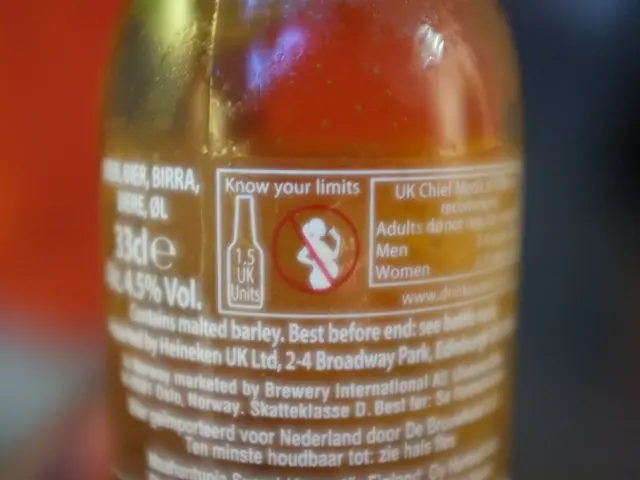Social Media and Self-worth: Navigating between Selfies and Self-doubt
Scrolling through Instagram, it's like sifting through old photo albums, yet these pictures have nothing to do with reality. It's almost like I'm strolling through a gallery of meticulously curated moments: frothy cappuccinos adorned with heart-shaped milk foam, radiant grins before sunsets in Thailand, toned bodies lounging in pristine living rooms.
Perfection? Only at first glance
There's a voice in my head whispering, "Why aren't you as productive, happy, successful?" It compares my backstage chaos with others' highly curated highlights. It overlooks the fact that those shining faces are just as tired as mine, that the cappuccino grew cold by the time the perfect photo was taken, and that that toned body likely had nothing but muscle cramps an hour after its fitness routine.
Social Media makes it hard to keep this perspective in check. It feels like I'm constantly looking in a mirror that doesn't show me as I truly am, but as I could be—or should be. The irony is that I'm part of the problem. When I post a sunset that made me happy or a photo of a good cup of coffee, I'm doing exactly the same thing: I'm curating. I'm highlighting a select moment that looks good—without sharing the moments when I get upset over everyday life or question what I'm really doing with my life.
Why settling for ourselves isn't enough?
Sometimes I wonder what it would be like if we all spent a day only posting our unfiltered moments. No filters, no perfect poses, no flawless meals. Instead, pictures of the chaos on the desk, of the rumpled bed after a sleepless night, or of ourselves, for the third time in a week, eating pasta with pesto because the fridge is empty.
That would be honest and probably relieving. But it would also be uncomfortable—because we've grown accustomed to presenting ourselves flawlessly. Maybe we're afraid we won't be enough without the gloss?
But here lies the real question: Why isn't being ourselves enough? Why do we need to polish ourselves to feel valuable? And why do we measure our worth by likes and comments, which often don't reflect reality?
Filtered worlds and real people
A survey by AOK Health Insurance reveals insights into the dark sides of Social Media. 40% of young adults report feeling pressure to look better due to Social Media[1]. But how do we break free from this cycle?
A first step is to question the reality behind the pictures: nobody looks flawless 24/7. Following accounts that promote authenticity and diversity instead of perpetuating unrealistic standards can help. What reassures me is that I'm not alone. There are many online showing who they truly are. Accounts that talk about tough days, mental health, or body positivity. They remind me that it's okay to be imperfect. That there's a real person behind every filter—with fears, insecurities, and flaws.
We are more than our Social Media feed
The problem with Social Media is that we lose ourselves in comparisons. We see others not as people, but as standards we measure ourselves against. And the more we do this, the less we can appreciate our own lives and personal achievements.
Maybe it's about finding the courage not to lose ourselves in these comparisons. My life is not less valuable just because it looks different from others'. And perhaps we're all a little happier when we focus less on what we don't have and more on what we already are.
Ayan Balakhanova
Ayan Balakhanova, born in 1999, has heard wrong pronunciations of her name more times than Timothée Chalamet, which is why she decided to prepare a presentation about it during her Journalism studies in Magdeburg: Take Footballer Michael Ballack + Hannover and add an 'a' at the end, and voilà. Ayan's parents come from Azerbaijan, and she was raised in Düsseldorf. There, as part of the Landesverband der Jüdischen Gemeinden Nordrhein, she managed projects in youth work, multilingual: Ayan speaks German, English, Hebrew, Russian, and Azerbaijani.
- Ayan Balakhanovahttps://ourwebsite/author/ayan-balakhanova/
- Ayan Balakhanovahttps://ourwebsite/author/ayan-balakhanova/
- Ayan Balakhanovahttps://ourwebsite/author/ayan-balakhanova/
- Ayan Balakhanovahttps://ourwebsite/author/ayan-balakhanova/
- Ayan Balakhanovahttps://ourwebsite/author/ayan-balakhanova/
In the realm of social media, mental health and self-perception intertwine, often for the worse. The allure of health-and-wellness, fashion-and-beauty, and lifestyle posts can subtly influence our understanding of what constitutes success or happiness. (science)
In the world of filtered images, it's essential to remember that everyone struggle with their own personal battles. The pursuit of perfection on social media often contravenes our commitment to healthier living, mental well-being, and overall lifestyle choices. (health-and-wellness, mental-health, lifestyle)
Just like reality, entertainment should illuminate the human experience in all its complexity. From the glamorous lives of celebrities to the extraordinary stories that unfold in our daily lives, entertainment has the power to shed light on our shared humanity and encourage empathy among us all. (entertainment)








